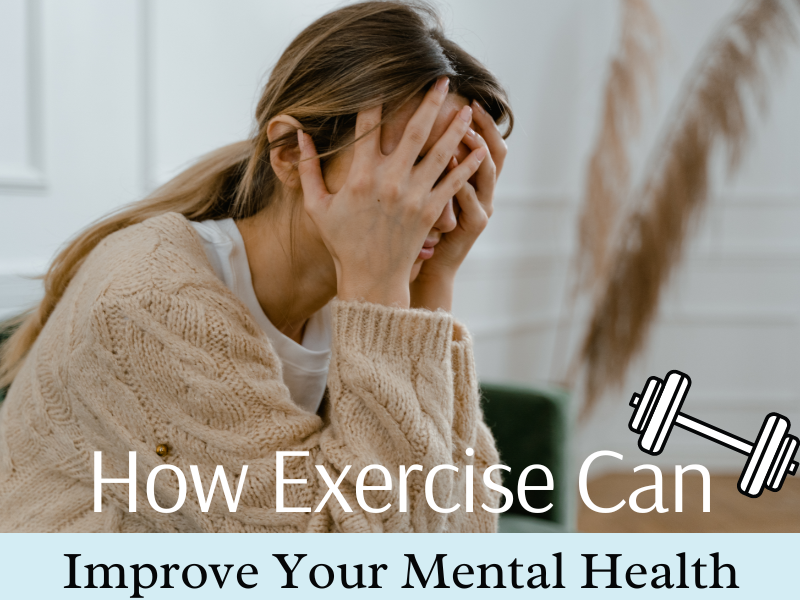In today’s fast-paced world, the prevalence of mental health issues like anxiety is on the rise. While there are various treatment options available, one powerful and accessible tool for improving mental well-being is exercise. Physical activity has been shown to have profound effects on mental health, reducing symptoms of anxiety and promoting overall emotional well-being. In this article, we’ll explore the science behind how exercise can improve mental health and provide practical tips for incorporating physical activity into your routine to reduce anxiety.
Numerous studies have demonstrated the positive impact of exercise on mental health, particularly in reducing symptoms of anxiety. Here are some ways in which exercise can benefit mental well-being:
Release of Endorphins
Exercise triggers the release of endorphins, neurotransmitters in the brain that act as natural painkillers and mood elevators. Endorphins help reduce feelings of stress and anxiety, promoting a sense of calm and well-being. The duration and intensity of exercise required to release endorphins can vary depending on several factors, including individual fitness level, type of exercise, and personal preferences. Try a variety of exercises whether it’s a brisk walk, a yoga session, or a high-intensity workout to help stimulate the release of endorphins.
Regulation of Stress Hormones
Physical activity helps regulate the body’s stress response by reducing the production of stress hormones such as cortisol and adrenaline. Regular exercise can lower baseline levels of these hormones, making individuals more resilient to stressors in their daily lives.
Improvement in Sleep Quality
Exercise has been shown to improve sleep quality, which is essential for maintaining good mental health. Adequate sleep helps regulate mood, reduce irritability, and enhance cognitive function, all of which contribute to better emotional well-being.
Distraction and Relaxation
Engaging in physical activity provides a temporary distraction from negative thoughts and worries, allowing individuals to focus their attention on the present moment. Exercise can also promote relaxation and reduce muscle tension, further alleviating symptoms of anxiety.
Practical Tips for Incorporating Exercise into Your Routine:

Now that we understand the benefits of exercise for mental health, let’s explore some practical tips for incorporating physical activity into your daily routine to reduce anxiety:
Find Activities You Enjoy: Choose activities that you genuinely enjoy and look forward to, whether it’s walking, cycling, swimming, dancing, or playing sports. Finding pleasure in exercise increases motivation and adherence to your fitness routine. You can also set fitness goals to help keep you accountable.
Start Small and Gradually Increase Intensity: If you’re new to exercise or have anxiety about starting a fitness regimen, start with small, manageable goals and gradually increase the intensity and duration of your workouts as you build confidence and stamina.
Make it Social: Exercise with friends, family members, or join group fitness classes to make physical activity more enjoyable and socially rewarding. The social support and camaraderie can provide an additional boost to your mood and motivation. If you’re a competitive person try joining a fitness club, a fitness contest, or use an app that shares your fitness progress with others. This can help you stick to your goals while enjoying some fun competition.
Schedule Regular Exercise Sessions: Set aside dedicated time in your daily or weekly schedule for exercise, treating it as a non-negotiable appointment with yourself. Consistency is key to reaping the mental health benefits of exercise. If you have trouble keeping to a routine, try 1-on-1 personal training. Coach Onelio can assist if you’re in the Tampa Bay area.
Practice Mindful Movement: Incorporate mindfulness techniques into your workouts by focusing on your breath, body sensations, and surroundings. Mindful movement can enhance the calming effects of exercise and promote a greater sense of well-being.
Break Up Sedentary Time: If you have a desk job or spend long hours sitting, take regular breaks to move and stretch throughout the day. Even short bursts of activity can help reduce anxiety and improve mood. Try to stand once an hour or use a standing desk for work.
Explore Outdoor Exercise: Take advantage of the therapeutic benefits of nature by exercising outdoors whenever possible. Whether it’s a walk in the park, a hike in the mountains, or a jog along the beach, spending time in nature can enhance the mood-lifting effects of exercise.
Exercise is a powerful tool for improving mental health and reducing anxiety. By understanding the science behind how physical activity affects the brain and implementing practical strategies for incorporating exercise into your routine, you can harness the transformative power of movement to promote emotional well-being and lead a happier, healthier life. So lace up your sneakers, step outside, and start reaping the mental health benefits of exercise today!
Coach Onelio
